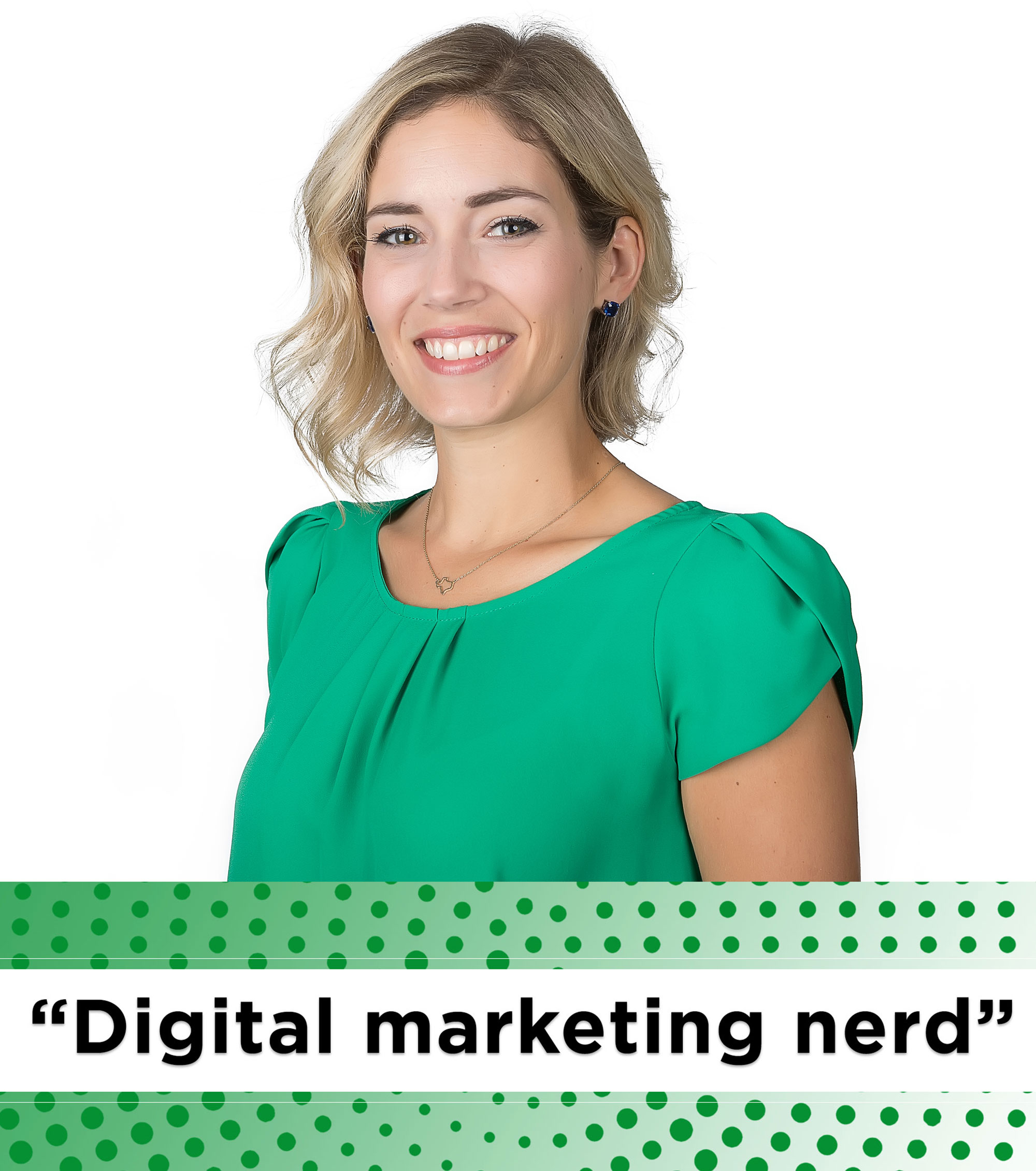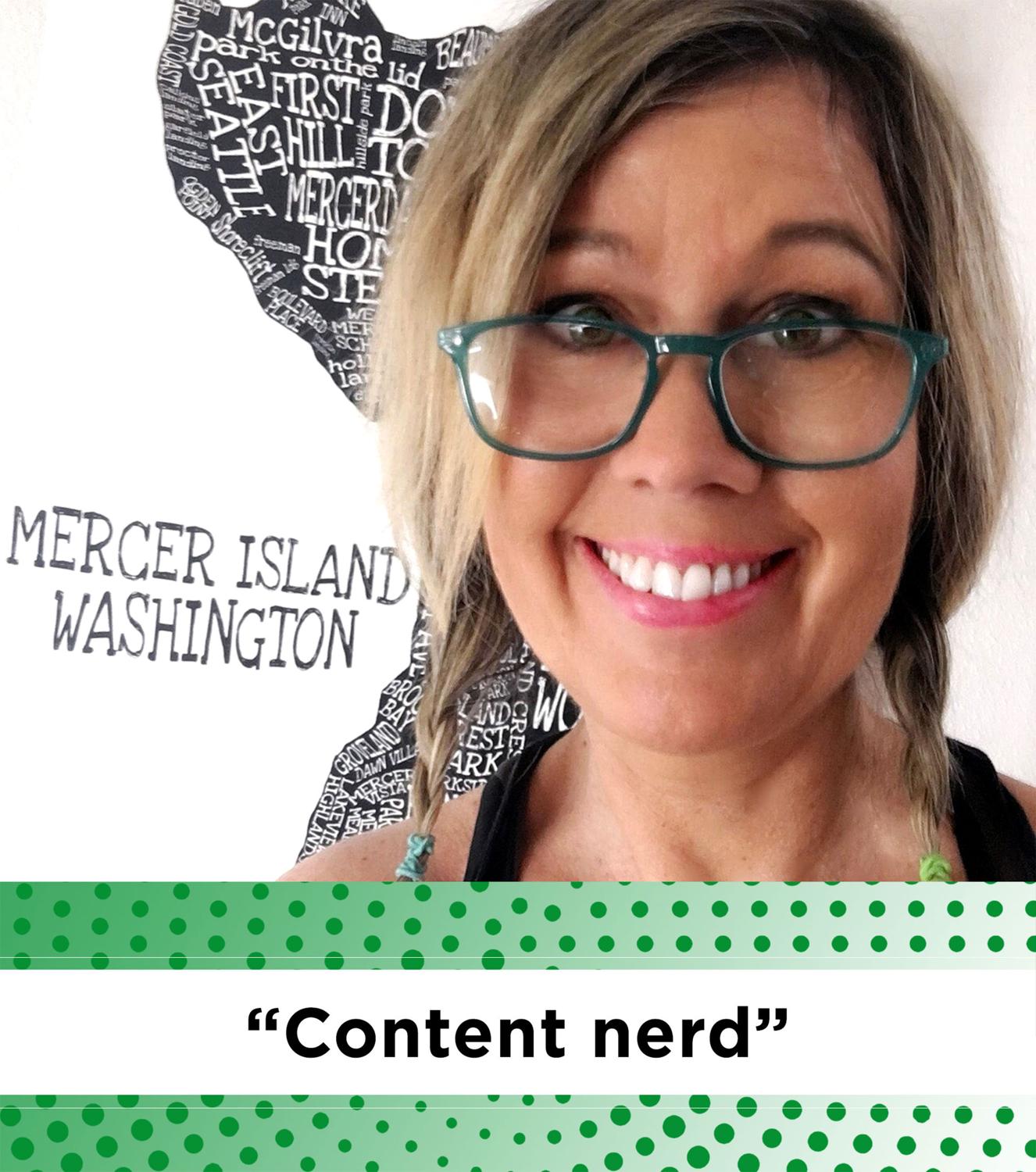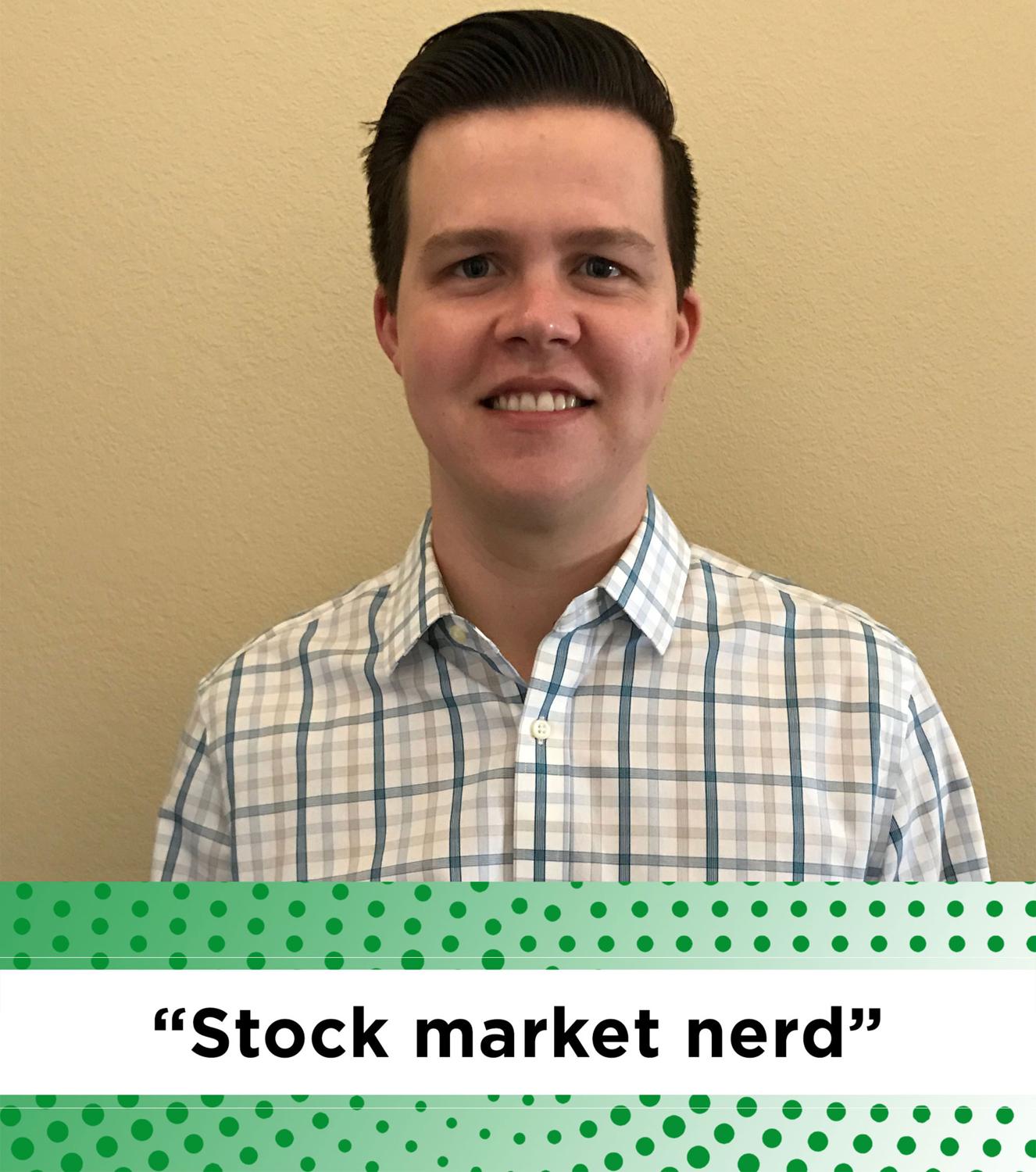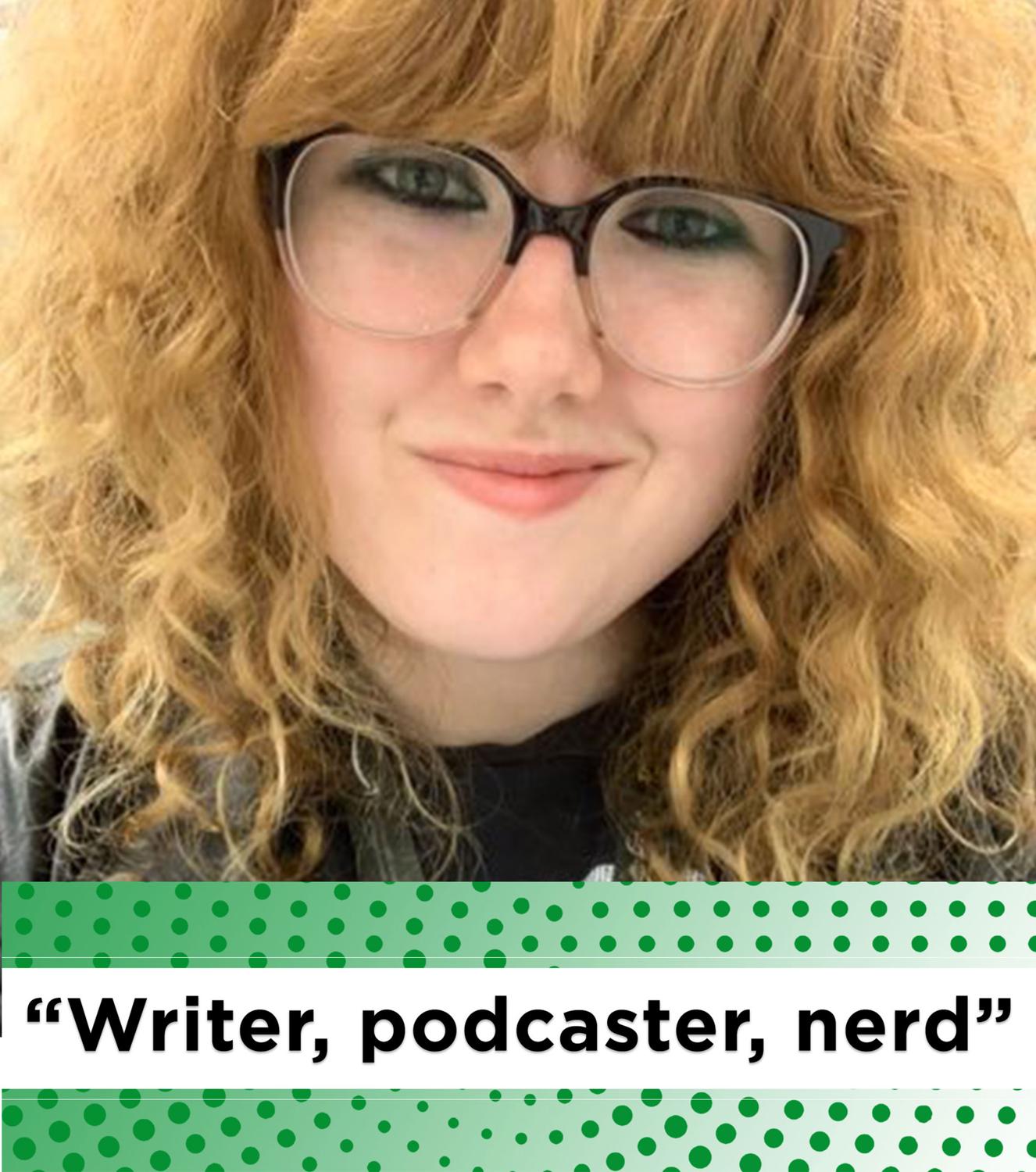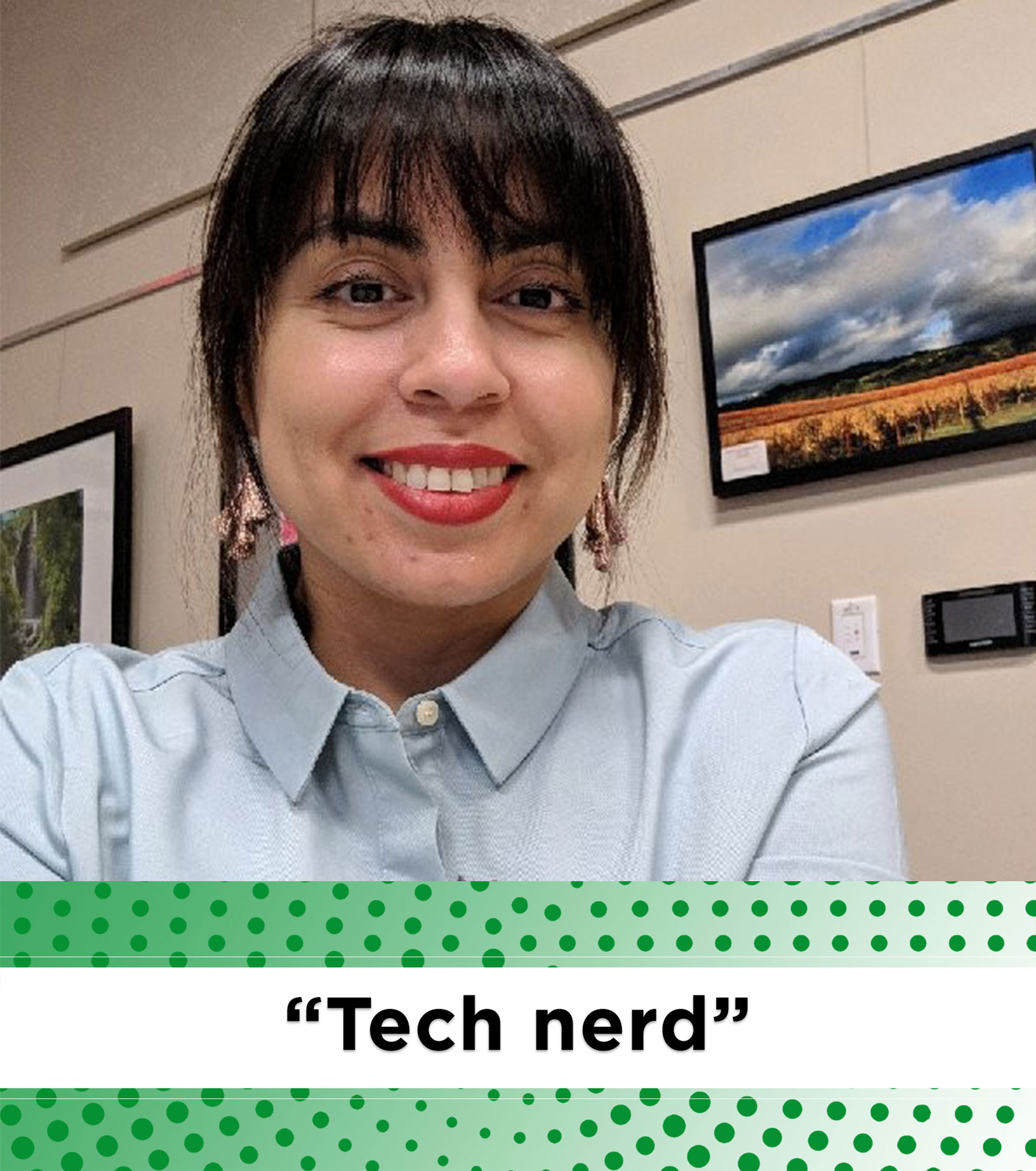Lisa Hamilton
Studied business computer information systems from 1989 to 1990
Current job: Product content manager, Thomson Reuters
Linkedin description: Content nerd and chief cat herder
Fun fact: Hamilton grew up on a pig farm in Northwest Iowa.
What does the term ‘nerd’ mean to you?
I feel like I’m ridiculous. I can see how people must perceive me, and I agree with
them — that I’m seriously over-the-top about content. It’s just being over-the-top
or zealous about a topic, like when someone mentions something and you can just ramble
on about it for hours.
Why do you describe yourself as a content nerd?
I’ve always had writing skills. As a kid, I would win a lot of the small-town essay
contests. So it’s always been some innate skill that I’ve had, some intrinsic sort
of thing. I started working in computer sales, and they asked if I would train the
new salespeople, and I said “Sure.” I started writing my own training materials. And
that’s what led me down this whole path. I became the de facto content person for
the computer company and turned that into an official technical writing role. When
I landed a contract as a technical editor with Microsoft and started working with
a Microsoft professional publishing team, I realized how much I love to do this. I
was editing writers who are just amazing at what they do — I was honored to edit their
work. It’s so smooth; they’re explaining technical things, but they’re doing it in
a way that’s conversational, and I was so impressed by that. They inspired me to invest
myself further in what I do.
What is the nerdiest thing you’ve ever done?
I ordered a bikini from Athleta, and they only sent me the top, not the bottoms. They
said, “You just ordered the top,” and I said, “No — the image showed two pieces, and
it said bikini,” and they said, “That’s how we advertise all of our swimwear separates.”
But it didn’t say that anywhere on the site. Still, they would not budge. I went back
and forth with their customer support and told them, “That’s fraud — your content
experience is bad, it’s misleading.” I had free legal service because I was working
for Thomson Reuters legal, so I had a demand letter written for this.
I mean, I knew it was super nerdy — even the lawyer kind of laughed about it. But
I took this all the way. They didn’t get back to me for two weeks, so I got impatient
and found a way to reach their press rep and wrote to her. I got a phone call the
next day from that department, and I explained to her that I’m a content professional
and how it was a bad content experience and it created a bad customer experience.
She agreed and said she would send me the bottoms for free. A few days later, I got
the package, and it was the bottoms — and also $500 worth of clothing, along with
a handwritten apology. And two weeks later, their website was changed. They now say
“bikini top,” and it didn’t say that before. So Athleta changed their website because
of my content nerdiness.
Are there pop culture things you are particularly nerdy about?
Not really pop culture. I nerd out about fitness. My email is “10minutemile,” so I
kind of make fun of myself a lot. I’m always out there doing things fitness-wise that
I’m just too old to do anymore, but I keep doing them and just laugh at myself. I
do Orangetheory twice a week and run a few races every year, including mud runs, trail
runs, costume runs and at least one half marathon, where I’m always a solid below-average
finisher. And Stitch Fix — I nerd out about that too. I think I’ve talked every woman
in the Thomson Reuters breakroom into it.
Why does the world need more nerds?
First of all, we’re really harmless. I think nerds just want to get along with everybody.
Nerds are just good people. We’re so nerdy, we wouldn’t judge anybody else for what
they’re into.
JUST PRESS PLAY: Is there a pop culture offering — book, movie, album, TV show, podcast,
etc. — that you have considered life-changing?
The Four Agreements is a book that is life-changing. In fact, I wear a bracelet every day that has the
four agreements engraved on it. It’s a personal development book, and the four agreements
are:
- Be impeccable with your word
- Don’t take anything personally
- Don’t make assumptions
- Always do your best
Those sound really simple, but then they break it down for you. “Be impeccable with
your word” is about being careful in what you say to people and how it affects them.
“Don’t take anything personally” is a great one, because it’s talking about even the
good things. They say you shouldn’t take compliments personally because it’s not about
you, it’s about the person giving the compliment, and that’s a big defining moment.
It just makes you more comfortable in your own skin — what someone thinks of me is
not about me, it’s about them. Also, “Don’t make assumptions” — I live by that one
also. And “Always do your best” is a great one, especially for me, because your best
can be different at any given time on any given day. It really kicked me into the
mode of personal development and what it is and why it’s important. It’s just made
life a little easier.
